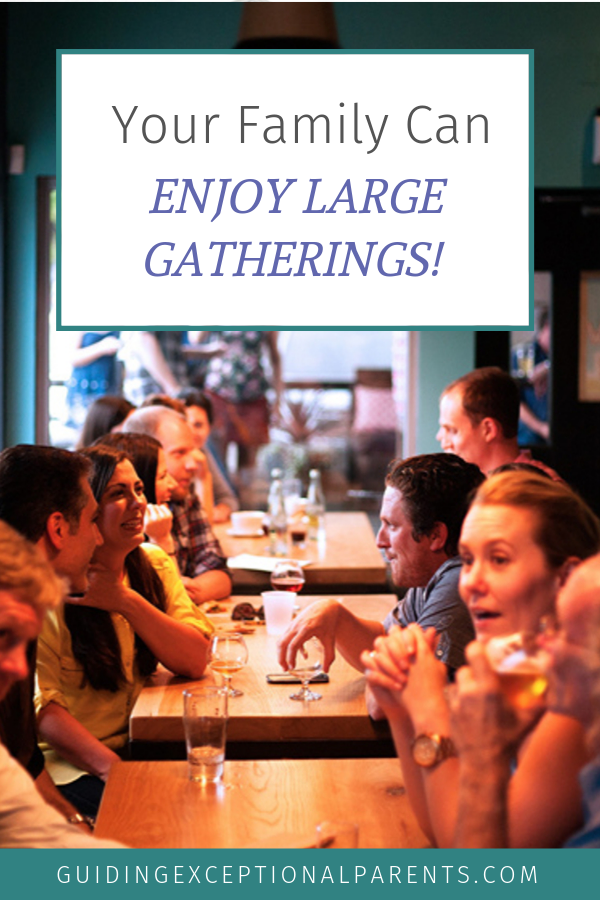While the holidays can be a wonderful time for families to gather and connect, for some kids these large family gatherings can be incredibly difficult. And when a child is having a bad time, their parents have a bad time too. This can turn what should be a special time with loved ones into a nightmare of inappropriate discipline, guilt, and disappointment. Here are some strategies that can help make large family gatherings more manageable.
- Make a social story for the holiday event itself (e.g., Thanksgiving Dinner). Talk about who will be there, what the table seating will be like, what foods will be served, and how to handle various social situations (like “What if you don’t like the food?” or “How do you great each person?” or “How much interaction with ‘strangers’ is required?”).
- Talk to the host (if you are at someone else’s house) about a “quiet room” where your kid can go hang out if they get overwhelmed. If it’s at your house, make sure there’s a quiet room available.
- Plan for the possibility of an early exit (if you are at someone else’s house). If your kids are losing it, one parent may have to take them away to allow them to regroup and recover. Plan for who will cover that duty ahead of time.
- If you have a picky eater who will only eat one food, don’t expect them to suddenly decide that unfamiliar food is yummy just because it’s the holiday and it will make Aunt Jeannie happy if they eat it. Make sure there is something your child can eat, and don’t be picky about what they eat during the big holiday meal. The focus should be on family and being together, not on whether your child is eating a balanced diet and trying new things. You can save those interactions for another time when it’s just you and your kids, and no audience of people who might not understand.
- If you are going to be visiting with other adults and will not be able to attend to your kids’ needs, make sure they have something to do that will entertain them when you are not available. Cue up a movie for them to watch, get them to help you in the kitchen, or let them bring a book to read so they can entertain themselves. Talk to your kids ahead of time about what you will be doing, and what they can do.
The key is for the adults to be flexible and clearly communicate structure and expectations. By helping your child feel comfortable, you will be building positive memories about gatherings with family.
Do you need help with your child? Sarah Wayland can help you figure out how to support your child via classes, Special Needs Care Navigation services, Parent Coaching, or as your certified Relationship Development Intervention (RDI) consultant.
This article was originally published by RDI Connect on November 19th, 2014.
Share this post on Pinterest!

